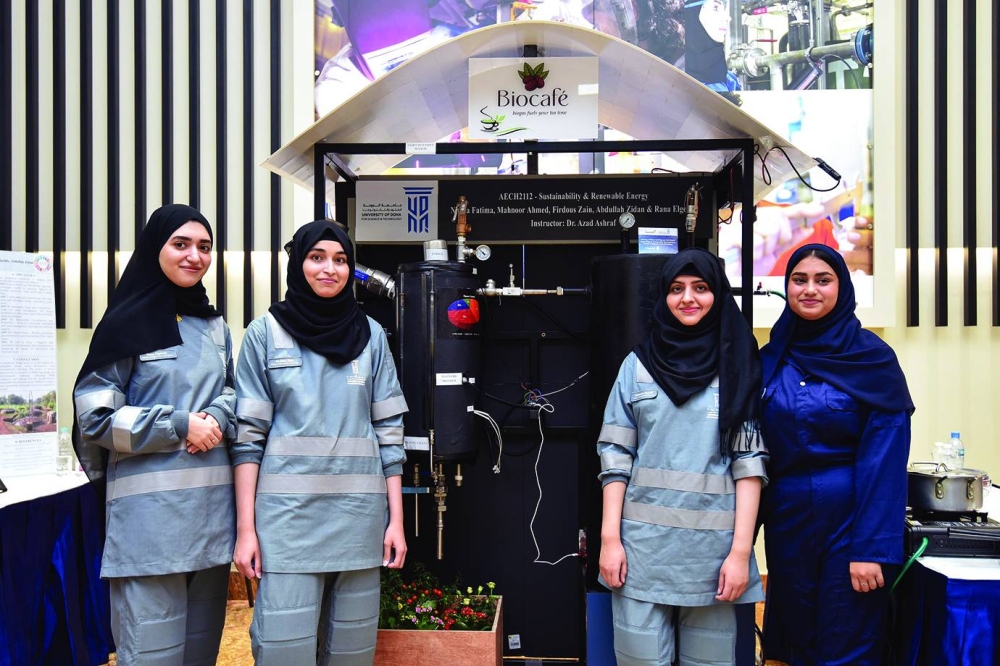The University of Doha for Science and Technology (UDST), together with the Chemnitz University of Technology (TU Chemnitz) and the University of Jordan (UJ), organised an event on Utilising Artificial Intelligence and Drone Technology in Sustainable Development, on the UDST campus.
The purpose was to raise awareness among students about the importance of using advanced technology in reaching sustainability targets, and ultimately help combat climate change.
Attendees included Dr Mohamed Yousef al-Mulla, vice-chair of the UDST’s Board of Trustees and managing director and chief executive of Qatar Petrochemical Company (Qapco).
Bangladesh ambassador Md Nazrul Islam and TU Chemnitz computer engineering chair Wolfram Hardt delivered presentations highlighting their recent achievements and experiences in relation to UN Sustainable Development Goals (SDG).
Delegates from leading industry giants such as Schlumberger, TotalEnergies, Qapco, and Swiss-Cos were present.
UDST academic vice-president Dr Rachid Benlamri and College of Engineering and Technology dean Dr Awni al-Otoom commenced the event with the welcome address.
The first half featured a selection of insightful talks and lectures from across the public and private sectors, and the second was dedicated to an interactive pitching session where students presented 18 innovative business projects to a panel of judges.
The event included an exhibition and a hackathon, two integral parts of the “Smart Eco” project which seeks to facilitate dialogue and establish a robust network between participating universities in Qatar, Jordan and Germany.
UDST president Dr Salem Al-Naemi said: “Organising this Smart Eco event is a great example of how much we value a collaborative and knowledge-sharing culture at UDST, as well as our proactive approach towards sustainability.”
“It is imperative to harness cutting-edge technology when tackling global issues like climate change,” he said. “We want our students to understand the vital role advanced technology plays in addressing these issues, and it is wonderful to see them bring such innovative solutions to the table, incorporating leading-edge technology such as drones and artificial intelligence.”
The winners of the hackathon were UDST students Mohamed Kurdi, Farah Khattab, Rohail Tahir, Sruthi Udayakumar, Noor Elgergawy, and Maheen Tariq, who presented the project “Bokashi Composting”, using a decentralised anaerobic composting facility for organic waste disposal.
The project “BioCafe” came second, using solar panels and an anaerobic digester to produce biogas.
This project was led by UDST students Firdous Zain, Mahnoor Ahmed, Nimra Fatima, Rana Elgendy and Abdullah Zidan.
In the third position came UJ student Albaraa Alkilani with his project on Using Drone Cluster and Machine Learning for Search and Rescuing in Natural Disasters.

A group of winning students.
